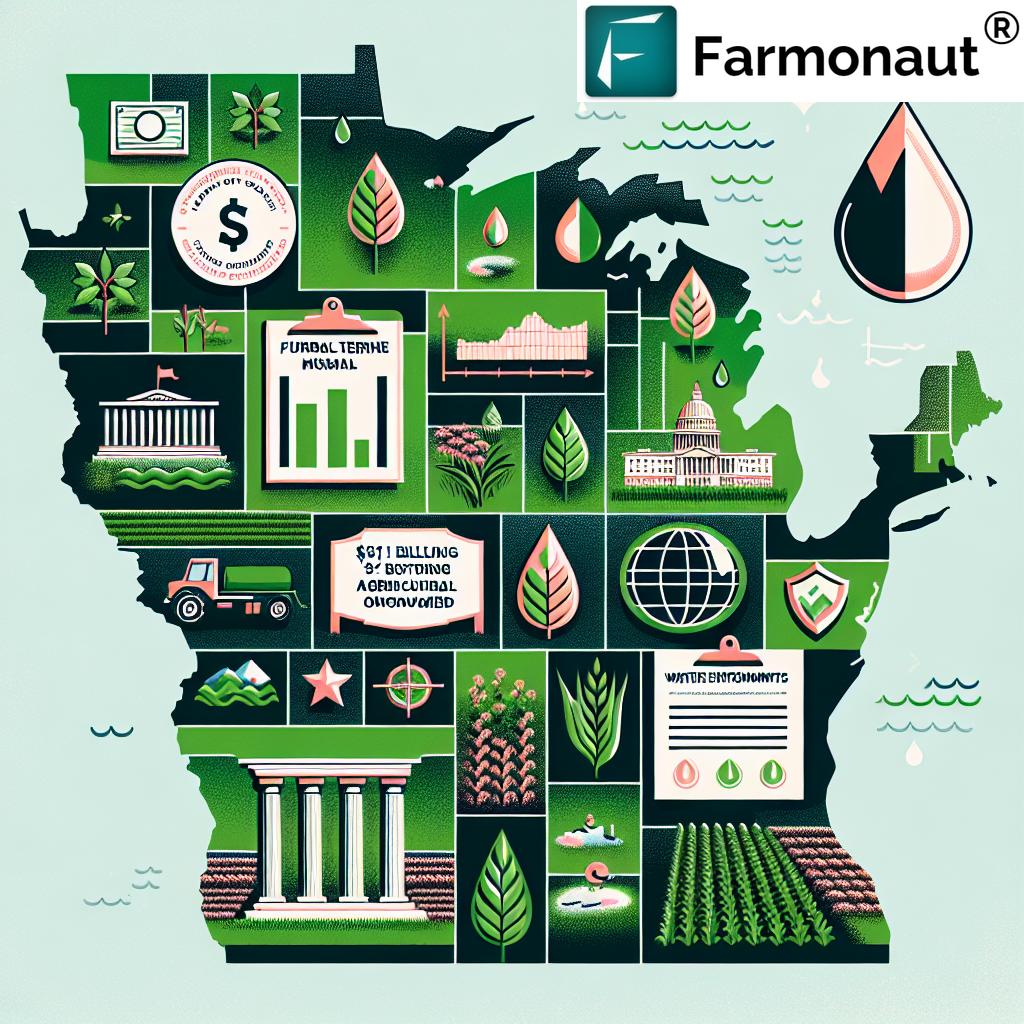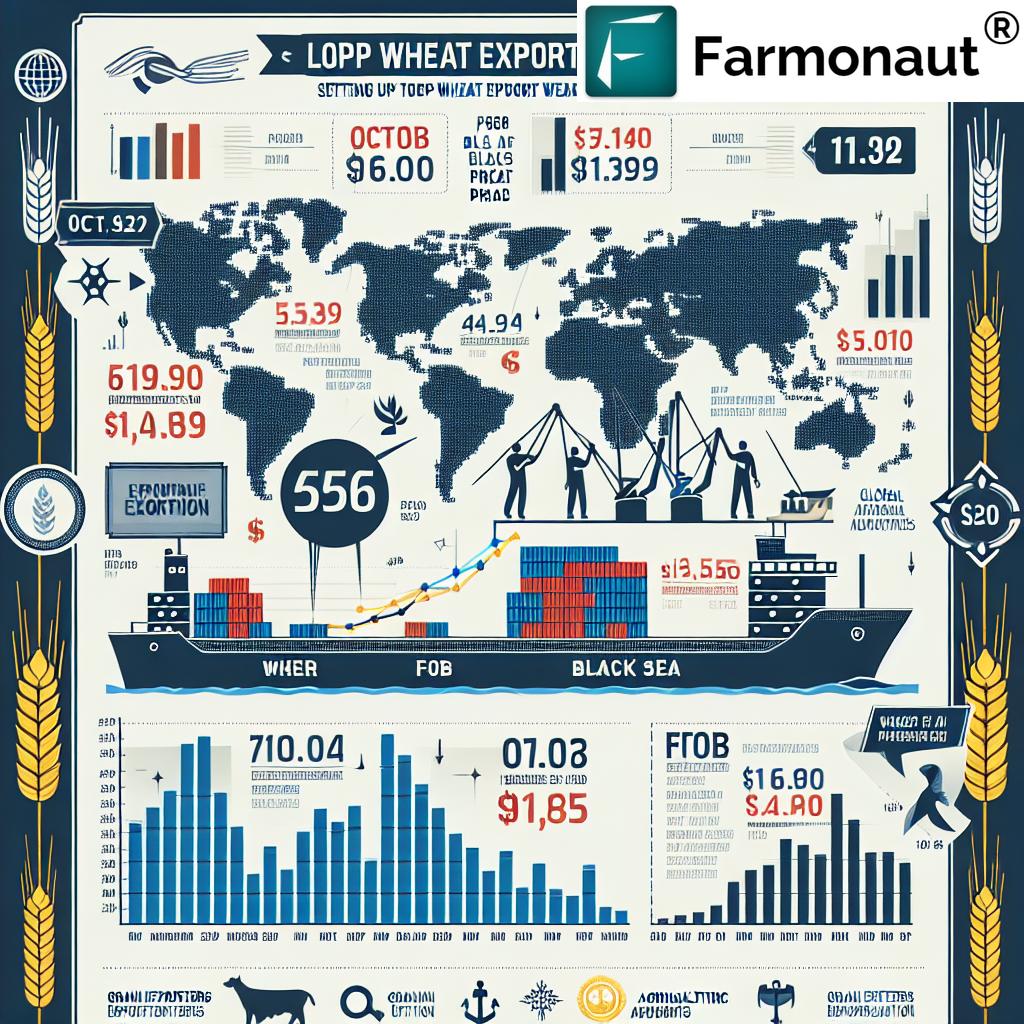Urgent Alert: West Coast Port Shutdown Threatens Canada’s $9.7M Daily Potash Exports and Global Food Security

OTTAWA, ON, Nov. 1, 2024 /CNW/ – A looming crisis threatens to disrupt Canada’s supply chain and jeopardize global food security as the West Coast ports shutdown approaches. Fertilizer Canada has raised urgent concerns about an impending labour disruption set to begin on November 4th, potentially crippling the nation’s vital fertilizer exports and dealing a severe blow to the potash industry.
The Impending Crisis: West Coast Ports Shutdown Impact
The West Coast ports shutdown poses a significant threat to Canada’s potash export capabilities. These ports are crucial for exporting potash to overseas markets, moving an impressive 21,000 Mt daily. The potential shutdown could result in a staggering loss of $9.7 million per day in sales revenue for the industry.
Karen Proud, President and CEO of Fertilizer Canada, expressed her concerns: “We are once again on the brink of losing access to a critical trade corridor, and potash fertilizer will be one of the hardest hit commodities. In August, both of Canada’s railways came to a standstill, and we now face potential shutdowns at our two largest ports. We are asking both the BC Maritime Employers Association and the International Longshore and Warehouse Union Canada to come to a resolution and avoid a catastrophic shutdown.”
Canadian Fertilizer Industry Crisis: A Recurring Nightmare
This isn’t the first time the Canadian fertilizer industry has faced such a crisis. The 2023 West Coast ports labour disruption cost the industry over $126 million and took 13 days to resolve. In the aftermath, Canada experienced a significant loss in market share to Russia in key markets such as Indonesia and Malaysia.
The potential West Coast ports shutdown comes at a particularly inopportune time, as the Port of Montreal is also facing labour disruptions. This Eastern Canadian import hub for fertilizer servicing further compounds the Canada supply chain vulnerability.

Global Food Security Threat: The Ripple Effect
The Canadian trade impact of this potential shutdown extends far beyond national borders. As the world’s largest producer of potash, responsible for nearly 40% of global production, Canada plays a crucial role in global food security. With 95% of its potash exported to over 75 countries, any disruption in the supply chain could have far-reaching consequences.
- Fertilizer is responsible for half of the world’s current food production
- The southern hemisphere’s spring planting season is approaching, making timely delivery crucial for international customers
- A prolonged disruption could lead to food shortages and price hikes in various parts of the world
For farmers and agricultural professionals looking to optimize their crop management in these uncertain times, Farmonaut’s web app offers valuable insights and tools.
Potash Trade Market Share Loss: A Growing Concern
The potential labour disruption at West Coast ports threatens to exacerbate an already concerning trend of market share loss for Canadian potash. Following the 2023 disruption, Canada saw its market share erode in key Asian markets, with Russia stepping in to fill the void.
This potash trade market share loss not only impacts Canada’s economy but also raises geopolitical concerns. As Karen Proud noted, “Disruptions also damage our trading relationships, providing an advantage to our competitors and potentially ceding market share to Russia and Belarus.”
Canada Labour Code Amendment Urgency: A Call for Action
While Fertilizer Canada respects the bargaining process, the association emphasizes that another supply chain shutdown is untenable. They are urging the federal government to take immediate action to prevent future disruptions.
The key proposal is to amend the Canada Labour Code section 87.7 to ensure the continuous movement of fertilizer products at ports during labour disputes. This amendment would help safeguard Canada’s reputation as a reliable trading partner and protect the nation’s critical role in global food security.
For those interested in staying updated on agricultural policies and their impacts, Farmonaut’s API provides valuable data and insights.
The Stakes: Canada’s Economic Impact and Global Responsibility
The fertilizer industry plays an essential role in Canada’s economy, contributing over $42 billion annually and employing 100,400 workers throughout the supply chain. Beyond the economic impact, Canada’s role in global food security cannot be overstated.
As a heavily export-driven industry, some of the biggest international buyers for Canadian fertilizer are in markets only accessible through ports. Any prolonged disruption in the supply chain could have severe consequences for food production worldwide.
Looking Ahead: Solutions and Preparedness
As the potential West Coast ports shutdown looms, various stakeholders are working tirelessly to find solutions and mitigate the impact. Here are some key areas of focus:
- Continued negotiations between the BC Maritime Employers Association and the International Longshore and Warehouse Union Canada
- Government intervention and potential legislative changes
- Development of alternative export routes and strategies
- Increased collaboration between industry players to optimize remaining resources
For agricultural professionals looking to optimize their operations in these challenging times, Farmonaut’s API Developer Docs offer valuable resources for integrating cutting-edge agricultural technology.
Conclusion: A Call for Unity and Action
The potential West Coast ports shutdown represents a critical juncture for Canada’s fertilizer industry and its role in global food security. As the situation unfolds, it’s crucial for all stakeholders – from government officials to industry leaders and workers – to come together and find a solution that protects Canada’s economic interests while fulfilling its global responsibilities.
The coming days will be crucial in determining the outcome of this crisis. As we await developments, it’s clear that the impact of this situation extends far beyond Canada’s borders, underlining the interconnected nature of global food security and international trade.
Stay informed and prepared with Farmonaut’s suite of agricultural tools and services:
















